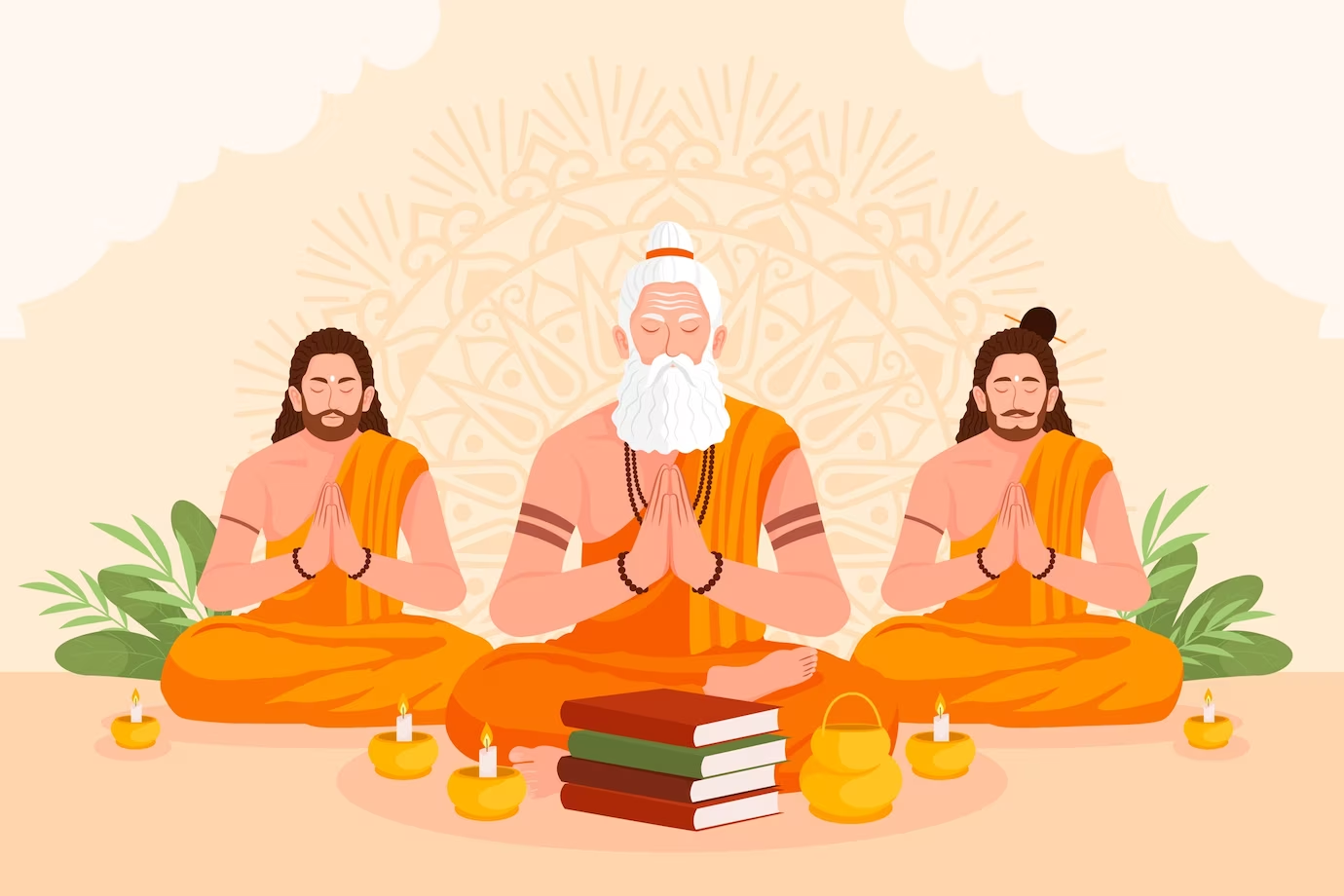Who Invented Astrology in India
Astrology, exploring the positions of celestial bodies and their impact on human destiny and behavior, has profound origins in ancient Indian civilization. From the Vedic era to modern times, astrology has played a significant role in shaping cultural practices, guiding decisions, and offering insights into personal and collective destinies.
Origins of Astrology in India
Early Vedic Period
Astrology finds its earliest documented roots in ancient Vedic texts, particularly the Vedas, which are among the oldest scriptures known to humanity. During the Vedic period, which spanned roughly from 1500 BCE to 500 BCE, scholars known as Rishis or sages meticulously observed the movements of celestial bodies. They correlated these observations with earthly events, seasons, and human experiences, laying the foundation for what would later evolve into astrology.
The Role of Vedic Astrology
Vedic astrology, also known as Jyotisha or Jyotish, emerged as a precise and systematic way of interpreting cosmic influences on individuals and societies. It integrated astronomical observations with spiritual and philosophical insights, forming a holistic approach to understanding life’s mysteries.
Contributions of Sages and Scholars
Sage Parashara – Architect of Vedic Astrology
Sage Parashara, believed to have lived around 3000 BCE, is revered as the pioneer of Vedic astrology. His magnum opus, the Brihat Parashara Hora Shastra, is a seminal treatise that codifies the principles of astrology. It elucidates planetary influences, predictive techniques, and the intricate interplay of cosmic energies on human life. Parashara’s systematic approach laid the groundwork for Vedic astrological practices, providing a comprehensive framework for understanding karmic patterns and guiding individual destinies.
Sage Varahamihira
Brihat Samhita and Brihat Jataka
Varahamihira, a distinguished astronomer and astrologer from the 6th century CE, further enriched astrological knowledge with his profound works. The Brihat Samhita encompasses a wide range of subjects, including astrology, astronomy, geography, and weather prediction. Within its pages, Varahamihira explores predictive techniques based on planetary movements, emphasizing the importance of accurate calculations and meticulous observations. His Brihat Jataka delves deeper into horoscopic astrology, offering detailed insights into personality traits, relationships, and future prospects based on birth charts. Varahamihira’s contributions expanded the scope of astrology, influencing subsequent generations of scholars and practitioners.
Maharishi Jaimini
Maharishi Jaimini, a revered sage and disciple of Vyasa, made significant contributions to astrological techniques with his Jaimini Sutras. These succinct aphorisms provide specialized methods for interpreting planetary positions and their effects over different phases of life. Jaimini’s approach emphasizes the role of karma and spiritual evolution in shaping individual destinies, offering practitioners deeper insights into the intricacies of human existence beyond mere predictive astrology.
Sage Bhrigu
Sage Bhrigu, one of the Sapta Rishis (seven sages) in Hindu mythology, is credited with compiling the Bhrigu Samhita. According to legend, he meticulously observed and recorded the lives and destinies of countless individuals through his divine insight and intuitive wisdom. The Samhita thus embodies centuries of astrological knowledge passed down through generations.
Evolution and Popularization of Astrology – Who Invented Astrology in India
Influence of Hindu and Buddhist Traditions
Astrology in India evolved through the influence of Hindu and Buddhist traditions. These belief systems integrated astrological principles into religious rituals, festivals, and everyday life. Astrology became a tool for guiding important decisions such as marriages, ceremonies, and political strategies, reflecting its integral role in societal structures.
How Siddhartha became Gautama Buddha – The Complete Story | Maya (mayathevoice.com)
Medieval Period
During the medieval period, astrology flourished under the patronage of various dynasties and kingdoms in India. Royal courts employed court astrologers who advised rulers on auspicious timings for battles, coronations, and administrative decisions. This era saw the compilation of numerous astrological texts and treatises, further enriching the corpus of astrological knowledge.Dynasties such as the Cholas, Chalukyas, and Rashtrakutas in southern India, and the Guptas, Mauryas, and Mughals in northern India, provided robust support and encouragement to astrologers. Court astrologers, known as “jyotishi”(astrologer) or “royal astronomers,” held prestigious positions, advising rulers on auspicious timings for important events such as coronations, battles, and religious ceremonies. Their astrological expertise was not only valued for political and military strategies but also for personal matters, including marriages, health concerns, and familial disputes. These texts, written in Sanskrit and later translated into regional languages, encompassed a wide array of topics ranging from predictive techniques based on planetary movements to remedial measures for mitigating negative influences. Notable works like “Jataka Parijata” by Vaidyanatha Dikshita and “Saravali” by Kalyana Varma exemplify the depth and breadth of astrological knowledge cultivated during this period.
Modern Astrology in India
Impact of British Colonial Rule
The British colonial rule in India brought significant changes to astrology. Western scientific skepticism towards astrology led to a decline in its official patronage and acceptance. However, astrology persisted among the masses and continued to thrive in traditional communities and cultural practices.
Revival and Global Influence
In recent decades, there has been a resurgence of interest in astrology, both in India and globally. Modern astrologers blend traditional techniques with contemporary interpretations, catering to a diverse audience seeking spiritual guidance, personal insights, and predictions about their lives.
Challenges Faced by Astrology Under Mughal and British Rule
Akbar’s Encouragement and Aurangzeb’s Skepticism
Under Emperor Akbar’s rule (1556-1605), astrology enjoyed a period of relative acceptance and patronage. Akbar was known for his eclectic approach to religion and governance, which included consulting astrologers and integrating astrological principles into courtly practices. However, his successors, especially Aurangzeb, who ruled from 1658 to 1707, adopted a more conservative stance. Aurangzeb’s orthodox policies and religious reforms led to a decline in official patronage for astrology, although private practitioners continued to operate.
British Colonial Rule: Decline and Displacement
With the advent of British colonial rule in India from the 17th century onwards, astrology faced significant challenges. The British brought with them a rationalist and empirical approach to knowledge, rooted in Western scientific thought. Astrology, considered superstitious and unscientific by British administrators and scholars, lost favor in official circles. The British East India Company’s policies aimed to diminish the influence of traditional practices, including astrology, in favor of Western education and governance systems.
Vimanas: Ancient Hindu Flying Machines | Maya (mayathevoice.com)
Conclusion
The Mughal and British periods in India marked significant challenges for astrology, leading to a decline in official patronage, erosion of traditional support systems, and marginalization of astrological practices. Despite the challenges posed by Mughal and British rule, astrology persisted among certain sections of society. Families and individuals continued to consult astrologers for personal guidance and cultural rituals, maintaining a semblance of continuity in astrological practices. In modern India, astrology has experienced a revival of interest, albeit often in a more commercialized or syncretic form that blends traditional techniques with contemporary interpretations.
Astrology in India has a rich and storied history, originating from ancient Vedic wisdom and evolving through centuries of scholarly contributions and cultural integration. While its origins may not be attributed to a single inventor, the collective wisdom of sages, scholars, and practitioners over millennia has shaped astrology into the profound and multifaceted discipline it is today.
Astrology continues to capture minds and hearts, offering a lens through which individuals seek to understand their destinies and navigate life’s complexities. Whether viewed through the lens of tradition, spirituality, or modern interpretation, astrology remains an enduring part of India’s cultural richness.



